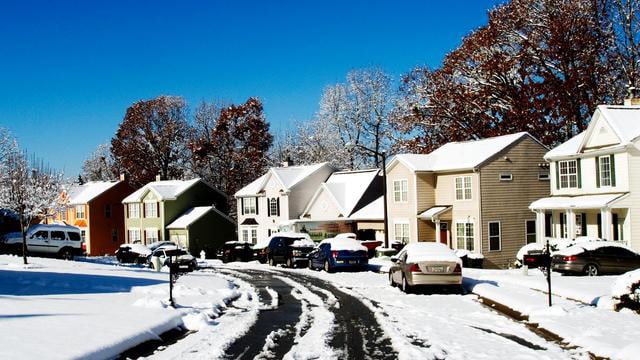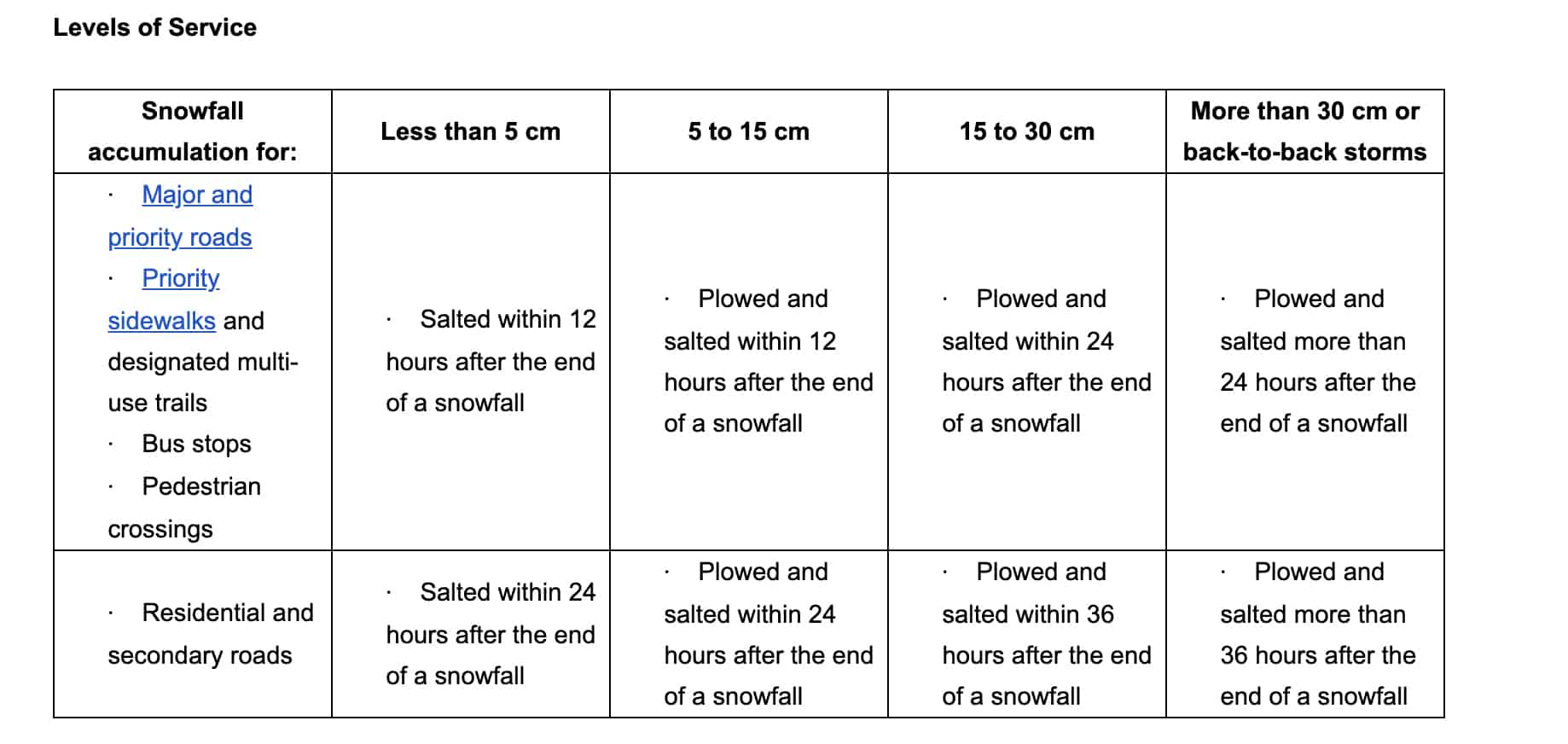How much does it have to snow for roads to be cleared in Mississauga?
Published December 2, 2020 at 7:24 pm

We might just be a few days into December, but we’ve already experienced some fairly significant snowfall and that might have all of you thinking: How much snow must fall before the city brings out the plows?
The short answer: Not that much.
“While this has certainly been a challenging year, Mississauga will continue to remain resilient as winter weather nears,” said Mayor Bonnie Crombie in a statement.
“As essential workers, our incredible winter crews will be ready to respond 24 hours a day, seven days a week to ensure that our roads, priority sidewalks, bike lanes, bus stops and more are safe and accessible for all those who travel to and from their destination – to keep Mississauga moving. I urge everyone to be patient and safe by giving our plows lots of space, driving to weather conditions and leaving a bit earlier when possible.”
 According to the city, major/priority roads and sidewalks, bus stops and pedestrian crossings are salted within 12 hours (after snow) when there’s less than 5 cm of snowfall and plowed and salted within 12 hours (after snow) when there’s between 5 cm and 15 cm of snow.
According to the city, major/priority roads and sidewalks, bus stops and pedestrian crossings are salted within 12 hours (after snow) when there’s less than 5 cm of snowfall and plowed and salted within 12 hours (after snow) when there’s between 5 cm and 15 cm of snow.
If the city experiences heavy snowfall (15 cm or more), priority roads will be plowed and salted within 24 hours.
When snowfall hits, the city’s winter crews–who utilize 370 pieces of snow clearing equipment–clear 5,600 lane kilometres of roads and on-street bike lanes (4,000 priority and 1,600 local), 1,600 lane kilometres of priority sidewalks, 3,400 bus stops, 95 kilometres of roadside multi-use trails and over 1,000 pedestrian crossings.
“Safety will continue to be a priority this winter,” said Mickey Frost, Director, Works Operations and Maintenance, in a statement.
“We will ensure that our priority routes such as major roads, on-street bike lanes, priority sidewalks, bus stops, pedestrian crossings and designated roadside multi-use trails are cleared first to maintain accessibility and allow emergency and transit vehicles to travel.”
Frost said that residential roads and priority sidewalks are not cleared to bare pavement, but are made passable and safe.
“As our crews clear residential roads, we also remind residents to please move parked vehicles off the street to allow plows to safely clear the street,” he said.
As for whether or not the pandemic will impact snow-clearing going forward, residents shouldn’t expect a decrease (or increase) in service this winter (or next). In the summer, city council approved a new eight-year winter maintenance contract for Mississauga that will begin in the fall of 2021 and expire in 2029.
The upcoming 2020/21 winter season will be the final year of the current seven-year contract.
In a news release, the city said the new winter maintenance contract will ensure that snow clearing operations are “more efficient” throughout the city, adding that the contract includes upgrades to snow clearing equipment and salt management practices.
As far as costs go, a recent corporate report says that the new contract will cost the city approximately $141 million over eight years or $17.7 million a year—almost $3 million more than the city’s current $14.8 million a year contract.
The report said that while the city had the option to increase winter service on residential sidewalks and windrows (the piles of snow left at the bottom of a driveway after the plow clears the road), staff recommended that council hold off due to COVID-19 and the associated deficit that the city is facing as a result of the lockdown.
Ultimately, council did not approve additional levels of service for driveway windrows and residential sidewalks, deferring enhancements to at least 2023 to minimize the budget impact in 2021 and 2022.
As for what residents should know about adverse weather, the city says that temporary parking permits can be suspended at any time during snow clearing operations and that new ones will not be issued. On-street parking restrictions between 2 a.m. and 6 a.m. remain in effect year-round.
As for salt, the city says salt trucks are equipped with on-board technology to monitor and control salt use, adding that access to an advanced weather monitoring system also allows winter crews to use the appropriate amount of salt in the right place and time.
“Residents can help by following manufacturer instructions, if salting on their property, by applying the right amount under the right conditions. Reporting of over-salting at bus stops can be done through the Pingstreet mobile app,” the city said in a news release.
Residents are advised to clear private walkways and driveways as soon as possible after a snowfall and offer to help older adults and people with disabilities to do the same. The city also asks residents to give snow plows and salt trucks extra room on the road and to always drive according to weather conditions.
insauga's Editorial Standards and Policies advertising





